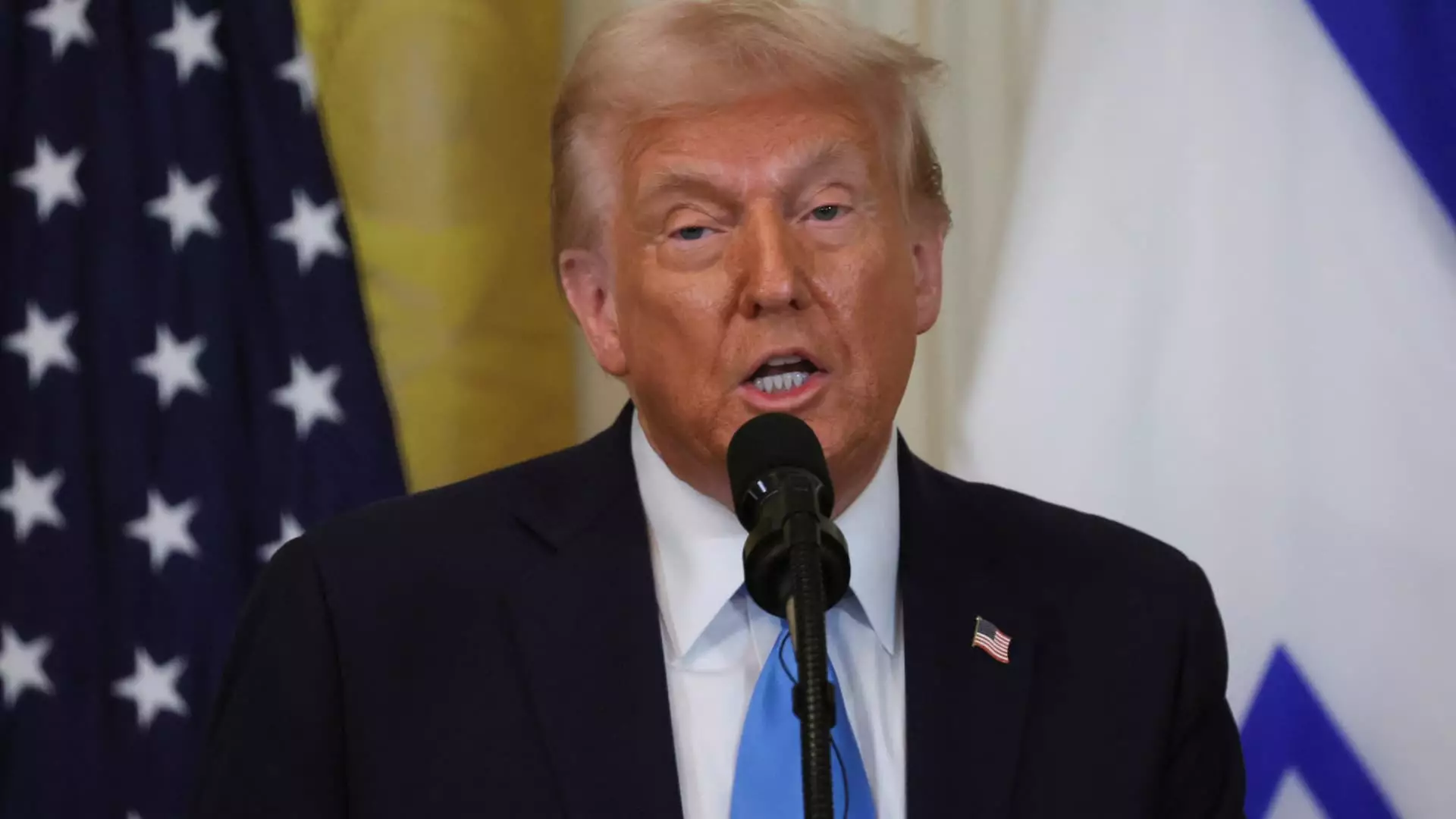The suggestion made by President Donald Trump regarding the future of the Gaza Strip has sparked significant controversy and debate. In a move that has raised eyebrows both domestically and internationally, Trump proclaimed that the United States would “take over the Gaza Strip” during a joint news conference with Israeli Prime Minister Benjamin Netanyahu. This claim not only underscores Trump’s characteristic bravado but also highlights the complexity of the geopolitical landscapes involved. As the conflict in Gaza continues to unfold, the implications of such a proposal can be dissected from various angles.
The Humanitarian Dilemma
At the core of Trump’s announcement lies the humanitarian crisis facing the population of Gaza, which currently numbers around 2 million. In the aftermath of the ongoing conflict that escalated dramatically with Hamas’s attack on October 7, 2023, the living conditions for many Palestinians have deteriorated. Trump stated that all Gazans should vacate the area and be resettled in other Middle Eastern countries. This raises profound ethical questions about the relocation of populations under duress. The idea that nations like Jordan and Egypt should accept an influx of refugees exacerbates existing tensions in these countries, each grappling with its own economic and social challenges.
Moreover, the suggestion to relocate millions seems almost dismissive of the realities faced by those currently living in Gaza. Labeling Gaza as a “hellhole,” Trump’s approach invokes a tone that could potentially fuel further resentment and division rather than fostering the peace he claims to seek. A strategy that disregards the aspirations of those affected is unlikely to garner support from the international community or the local populace, highlighting the need for more empathy-driven solutions.
Trump’s assertion that the U.S. would assume ownership of Gaza ventures into uncharted waters of international relations. Such a proposition could have significant ramifications, altering the dynamics not only within the Israeli-Palestinian conflict but also affecting Washington’s relationships with other Middle Eastern nations. Netanyahu’s endorsement of this idea indicates that it may align with certain Israeli interests, but it overlooks the sovereignty concerns raised by Palestinians and their allies.
The U.S. has historically played a mediator role in the region, but Trump’s idea of outright ownership signals a departure from diplomacy towards a more imperialistic approach. Previous remarks he made about purchasing Greenland, turning Canada into a U.S. state, and reclaiming the Panama Canal reveal a pattern of thinking that simplifies complex territorial disputes through the lens of acquisition. This method of thinking raises questions about the U.S.’s commitment to principles of self-determination and international law.
Economic Development vs. Reconstruction
Trump’s vision for Gaza, where he likens it to “the Riviera of the Middle East,” implies a shift from conflict to development. He touts ambitious plans for economic growth, job creation, and rebuilding infrastructure. However, this narrative downplays the essential preconditions for such development, notably peace, stability, and local ownership of initiatives.
Reconstruction in a war-torn area is not merely a matter of financial investment; it requires the active participation and buy-in from the communities involved. Past experiences, both in Gaza and other conflict-ridden territories, demonstrate that externally imposed solutions often fail without local support. Furthermore, the idea of physical restructuring raises questions about land rights, local governance, and the autonomy of Gazans who have lived through conflict for decades.
As international dialogue about Gaza continues, Trump’s statements have introduced a level of chaos into an already complex situation. For any meaningful resolution to emerge from the current ceasefire discussions and subsequent negotiations, it is crucial to understand the local narrative and engage with the affected communities sincerely. The need for a multifaceted approach, incorporating humanitarian aid, local governance, and sustainable development, is paramount.
While Trump’s statements may ignite discussions around Gaza’s future, they could unintentionally perpetuate cycles of conflict if not handled with caution and respect for the people involved. The world watches closely as the situation develops, hoping for solutions that prioritize the well-being of Gazans amid the chaos of geopolitical ambitions.

Leave a Reply